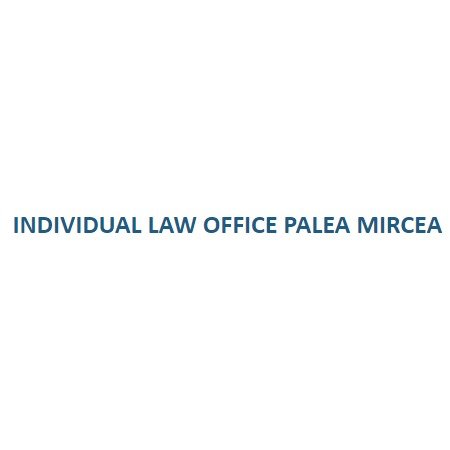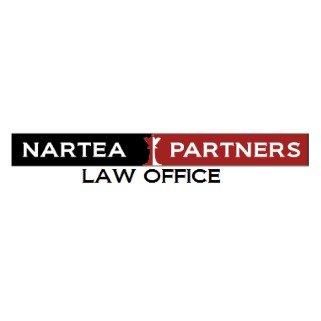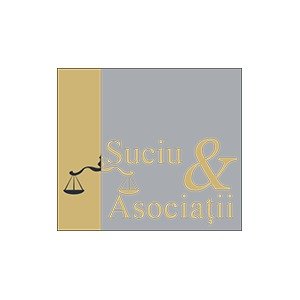Best International Trade Law Lawyers in Sibiu
Share your needs with us, get contacted by law firms.
Free. Takes 2 min.
List of the best lawyers in Sibiu, Romania
About International Trade Law in Sibiu, Romania
International Trade Law in Sibiu, Romania, is a crucial branch of legal practice that deals with the rules and guidelines governing trade between Romania and other countries. It encompasses various aspects, including import and export regulations, trade agreements, tariffs, and dispute resolution mechanisms. Sibiu, known for its growing commercial activities and as a thriving business hub, sees significant interest in international trade, necessitating a detailed understanding of the applicable legal frameworks to ensure compliance and to facilitate smooth trade operations.
Why You May Need a Lawyer
Several situations may require individuals or businesses in Sibiu to seek legal expertise in International Trade Law. These may include:
- Navigating complex import and export regulations that vary by country.
- Dealing with contractual disputes related to international transactions.
- Understanding and complying with international trade agreements.
- Resolving customs and tariffs issues.
- Managing compliance with international trade sanctions or embargoes.
- Addressing intellectual property rights in foreign jurisdictions.
- Handling anti-dumping and countervailing duty investigations.
- Facilitating cross-border mergers and acquisitions.
- Mitigating risks associated with international trade finance and transactions.
Local Laws Overview
International Trade Law in Romania is primarily governed by national legislation, European Union regulations, and international agreements to which Romania is a party. Key aspects include:
- Alignment with EU trade policy, as Romania is a member state of the European Union.
- Adherence to the World Trade Organization (WTO) agreements, enhancing trade facilitation and liberalization.
- Comprehensive local regulations ensuring compliance with standards for health, safety, and the environment in imported and exported goods.
- National laws focusing on tariff and non-tariff barriers, customs procedures, and export controls.
- Utilization of bilateral and multilateral trade agreements to bolster economic relationships.
Frequently Asked Questions
What is International Trade Law?
International Trade Law refers to the set of laws and guidelines that govern trade between different countries, including export/import regulations, trade agreements, and dispute resolutions.
How does the EU affect International Trade Law in Romania?
As a member of the EU, Romania adheres to EU trade policies and regulations, which have precedence over national laws, facilitating uniformity in trade practices across member states.
Do I need a license to import goods into Romania?
Generally, specific licenses for importing goods into Romania may be required depending on the product's nature, especially those subject to health, safety, or environmental standards.
What is a trade agreement?
A trade agreement is a treaty between two or more nations agreeing on how they will cooperate to ensure mutual trade benefits. These agreements may influence tariffs, trade barriers, and other trade-related regulations.
What should I do if faced with a trade dispute?
Engaging an experienced international trade lawyer is advisable to navigate the legal landscape, explore dispute resolution mechanisms, and potentially facilitate negotiations or litigation.
Are there prohibited goods for import/export?
Yes, certain goods may be banned or require special permits due to safety, health, or environmental concerns, as per Romanian and European Union regulations.
What are customs duties?
Customs duties are taxes imposed on goods as they cross international borders, aimed at controlling the flow of goods and protecting domestic industries.
How is the valuation of imported goods determined?
The valuation is typically based on transaction value, adjusted according to customs laws and international agreements to ensure fair and accurate duty assessments.
Can foreign companies establish a business in Romania?
Yes, foreign companies can set up businesses in Romania, usually by forming a domestic company or branch, subject to legal and procedural requirements.
What is export control and who implements it?
Export control involves regulations to prevent the proliferation of sensitive technologies, goods, or information that could harm national or international security, enforced by governmental agencies.
Additional Resources
For additional assistance and information, consider reaching out to:
- The Romanian Ministry of Economy, Entrepreneurship and Tourism, for policy guidance.
- The European Commission’s Trade Department, for EU trade regulations.
- The World Trade Organization (WTO) resources, for global trade rules and agreements.
- Local chambers of commerce, offering support and advisory services.
- Legal trade journals and publications, for staying updated on legal precedents and amendments.
Next Steps
If you need legal assistance in International Trade Law, consider taking these steps:
- Identify your specific legal needs in relation to international trade.
- Research and consult with qualified international trade lawyers in Sibiu, Romania.
- Gather necessary documentation and information pertinent to your issue.
- Explore initial consultations to understand potential legal strategies and costs involved.
- Stay informed about any new developments in trade laws that may affect your situation.
Lawzana helps you find the best lawyers and law firms in Sibiu through a curated and pre-screened list of qualified legal professionals. Our platform offers rankings and detailed profiles of attorneys and law firms, allowing you to compare based on practice areas, including International Trade Law, experience, and client feedback.
Each profile includes a description of the firm's areas of practice, client reviews, team members and partners, year of establishment, spoken languages, office locations, contact information, social media presence, and any published articles or resources. Most firms on our platform speak English and are experienced in both local and international legal matters.
Get a quote from top-rated law firms in Sibiu, Romania — quickly, securely, and without unnecessary hassle.
Disclaimer:
The information provided on this page is for general informational purposes only and does not constitute legal advice. While we strive to ensure the accuracy and relevance of the content, legal information may change over time, and interpretations of the law can vary. You should always consult with a qualified legal professional for advice specific to your situation.
We disclaim all liability for actions taken or not taken based on the content of this page. If you believe any information is incorrect or outdated, please contact us, and we will review and update it where appropriate.

















